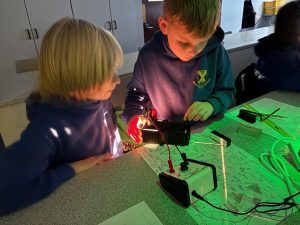
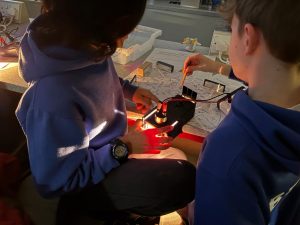
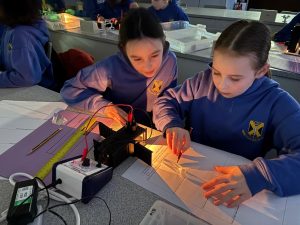
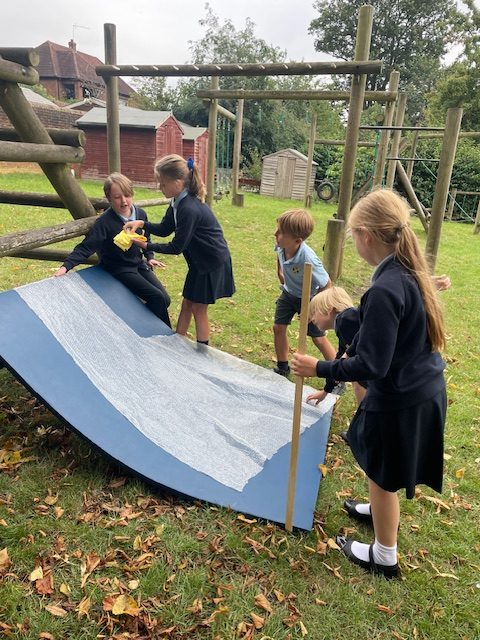
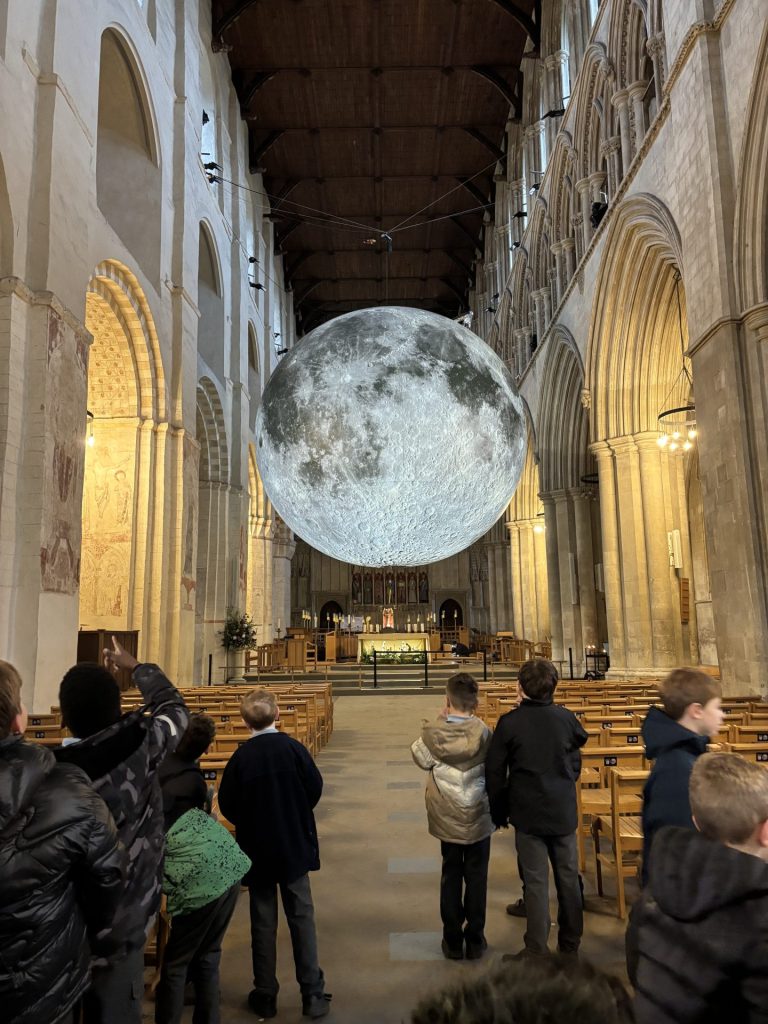


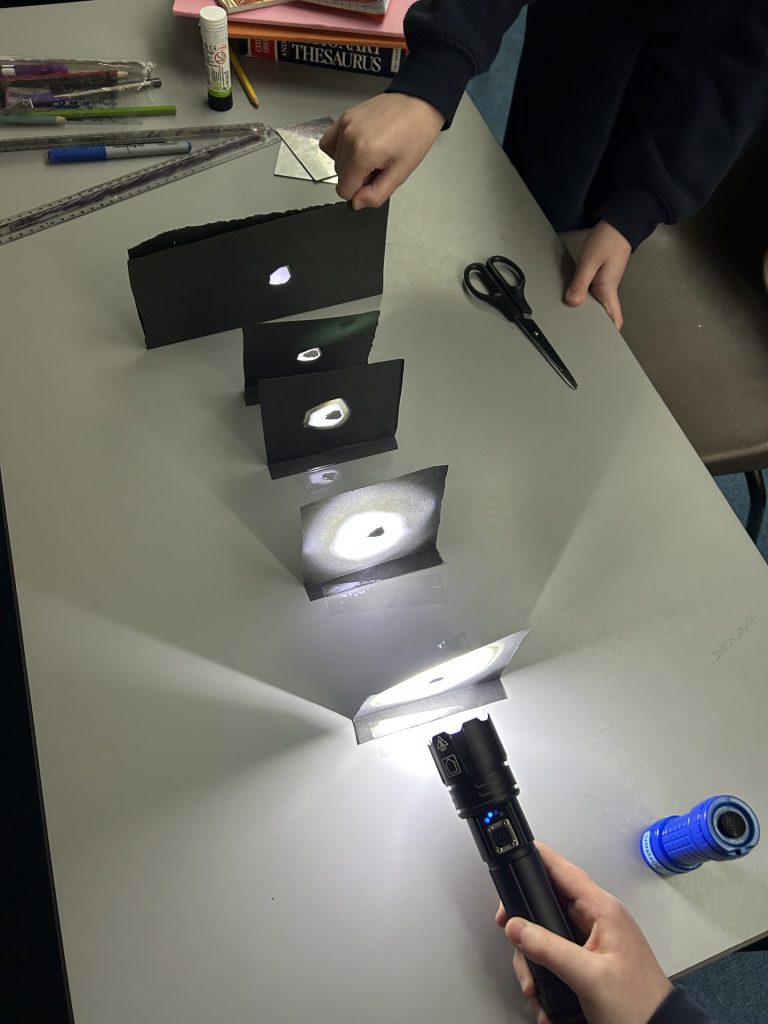
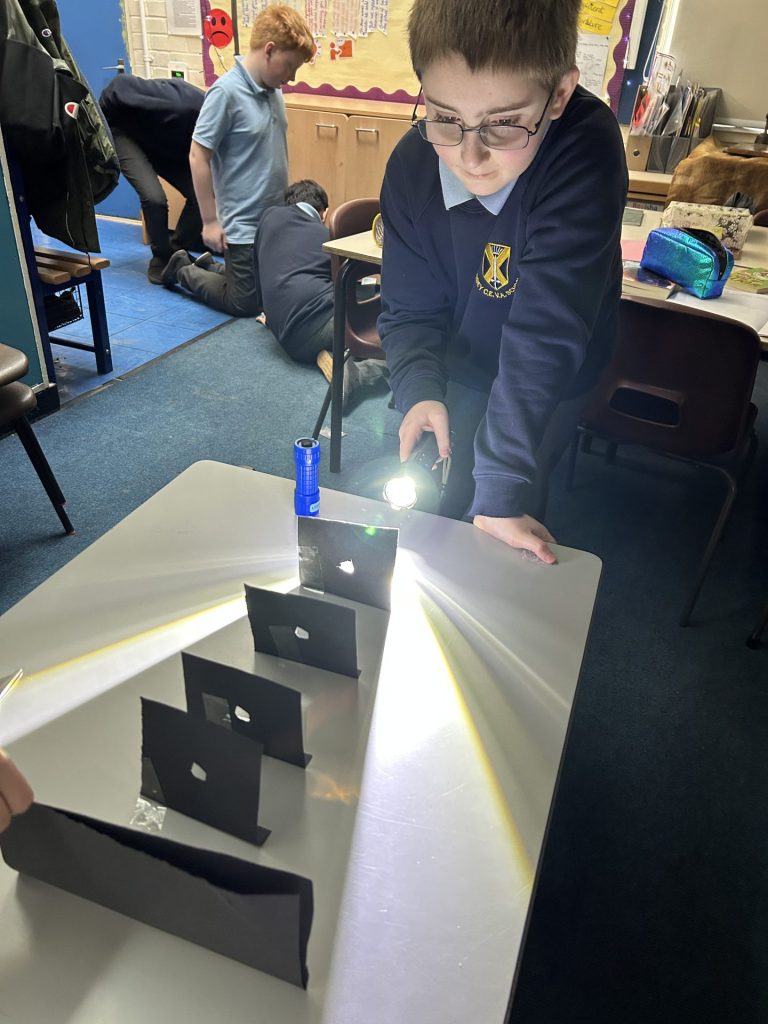




‘A high-quality science education provides the foundations for understanding the world through the specific disciplines of biology, chemistry and physics. Science has changed our lives and is vital to the world’s future prosperity, and all pupils should be taught essential aspects of the knowledge, methods, processes and uses of science.’
The Primary National Curriculum Framework 2014
Aims
At Abbey CE VA Primary School, our aim is to nurture pupils’ natural curiosity about the world around them through engaging and practical science education. We believe that Science helps pupils understand how the world works and develops critical thinking skills essential for their future. Our curriculum aims to create enthusiastic young scientists who can work scientifically, conduct investigations, and understand key scientific concepts. We strive to ensure every child develops a love of scientific enquiry while building the knowledge and skills needed to understand the role of science in our everyday lives.
How We Teach Science
Our approach to teaching Science is practical and investigative, encouraging pupils to discover scientific concepts through hands-on exploration and experimentation. Lessons are carefully structured from White Rose Science to develop both scientific knowledge and enquiry skills, with an emphasis on pupils working scientifically.
Teachers use a variety of approaches including practical investigations, demonstrations, scientific models, and digital resources to bring science to life. We create opportunities for pupils to observe scientific phenomena, ask questions, and conduct fair tests. Our well-resourced science provision ensures pupils have access to appropriate equipment and materials for investigations.
Working scientifically is embedded throughout our teaching. Pupils learn to:
- Ask relevant questions
- Set up fair tests
- Make careful observations
- Take accurate measurements
- Record and present data
- Draw conclusions from their findings
- Use scientific vocabulary accurately
Assessment is conducted through practical work, written outcomes, and discussions. We focus on both scientific knowledge and the development of working scientifically skills throughout all topics.
Abbey school pupils also celebrate “Science Week” every year, inviting those parents with scientific skills to share their expertise with our pupils.
What Skills and Knowledge Will Your Child Learn?
Throughout their time at Abbey, pupils develop essential scientific skills and knowledge. In the early years, children explore scientific concepts through play-based learning and hands-on experiences. They begin to make observations and ask questions about the world around them.
As they progress, pupils develop more sophisticated scientific understanding across key areas:
Biology:
- Living things and their habitats
- Animals including humans
- Plants and their life cycles
- Seasonal changes
- Evolution and inheritance
- Habitats
- Food Chains
- Classification of organisms
- Reproduction
Chemistry:
- Properties and changes of materials
- States of matter
- Rocks and soils
- Reversible and irreversible changes
Physics:
- Forces and magnets
- Light and sound
- Electricity and circuits
- Earth and space
- Energy and motion
- Properties of waves
Sustainability
- Caring for the planet
- Growing and Cooking
- Wildlife
- Food Waste
- Biodiversity
- Energy
- Deforestation
- Global Warming
- Plastic Pollution
Working Scientifically Skills:
- Planning different types of enquiries
- Taking measurements using scientific equipment
- Recording data in various ways
- Using results to make predictions
- Identifying scientific evidence
- Drawing conclusions
- Evaluating methods
By Upper Key Stage 2, pupils will have developed:
- Deep understanding of key scientific concepts
- Confidence in working scientifically
- Skills in conducting investigations
- Ability to use scientific equipment safely
- Understanding of fair testing
- Scientific vocabulary and explanation skills
- Data handling and presentation skills
These skills and knowledge progress systematically through the year groups, building on previous learning. Our approach develops important transferable skills including:
- Critical thinking and problem-solving
- Observation and recording
- Analysis and evaluation
- Communication and explanation
- Collaboration and discussion
- Research and investigation
Through our science curriculum, pupils learn to:
- Think scientifically about the world
- Conduct systematic investigations
- Use evidence to support ideas
- Work methodically and safely
- Apply scientific knowledge
- Make connections between concepts
- Understand the nature of science
We believe these skills and knowledge are essential for pupils to develop as scientifically literate citizens who understand the importance of science in our modern world.
Curriculum Overview
- Science Curriculum Overview (74.85KB)
National Curriculum
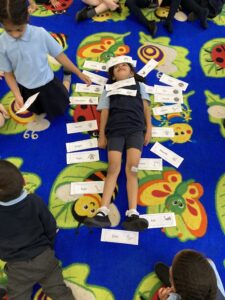
Animals including Humans Unit 1
The children explored the human body through the song ‘Heads, Shoulders, Knees and Toes’ and hands-on labelling activities. They then developed their understanding of the
